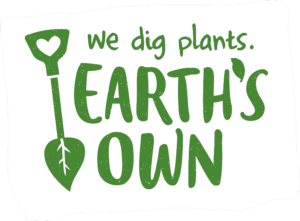
Hello! I am a PhD student who loves talking about veganism as it relates to my culture. On my platforms, I share easy vegan recipes that highlight Ghanaian and West African food culture, ingredients and cooking methods. I love to challenge my audience to think outside the box when it comes to living a vegan lifestyle as it pertains to being more inclusionary. You can find me on Instagram at @eatwithafia or on my blog at www.thecanadianafrican.com
Growing up in Ghana, every July the rain would come. It came quickly, aggressively and caused a lot of havoc. With our low-lying country, improper drainage and flood preparation, homes were lost and lives were destroyed. But as quickly as the destruction came, it would go away. By September the rain will subside and people will go back to their lives. The heat will come in full force. By December all of southern Ghana is covered with thick dust. This cycle continues every year.
If you look at this phenomenon on a short-term basis by comparing one year to another, it might be hard to see any changes, but when you look over ten years, you can start to see more pronounced impacts of climate change on this cyclical weather phenomenon. As a child I couldn’t grasp this well, but as an adult, after having conversations with my parents about the famine that ravaged Ghana in 1983, the floods coming later in the year, and seeing how reliant we as people are on nature, I can see how our current climate crises will hurt Ghana and many Sub-Saharan countries hard. Harder than people will expect.
Knowing this reality has left me feeling more inclined to try my best to be better for the planet. It is easy for us to sit in Canada and not care about what is happening in other parts of the world because it seems like we are not creating the problem. However, since climate is a complex aspect of our world, the choices we make here in Canada have grave impacts on the continent of Africa.
As the second largest land mass, Africa will feel the brunt of climate change. Furthermore, its location and complex weather system mean that it is heavily affected by climate factors from other continents. Most importantly, Africans are far more reliant on nature for livelihoods: the rain for crops to eat, clean water to drink and sea for fishing. Variability in the weather system spells disaster for millions of people. However, Africa, as a continent, produces a fraction of what Canada and the US produce in greenhouse gases. As a Ghanaian living in Canada, this really helps put into perspective how my lifestyle here in Canada can impact my family back home.
The vegan movement is based on compassion for all, whether human or non-human. I believe in order for this movement to be more compassionate, it should also include conversations of how our choices affect others. Living in North America, our lives have a significant impact on the planet we live in, just because of how our society has been built. With the many privileges we have, we might not directly see this impact, but many may be experiencing the brunt of most of our decisions. My vegan journey has been strengthened by this realization. Living a vegan lifestyle, although an individual choice, can still have an impact. I hope that with sharing my journey, it can encourage more people to live more plant forward lives and together start a movement. Something as simple as swapping dairy milk for plant-based m*lk is an amazing start. These small steps make a big difference, and if more people make these small steps, this can quickly accumulate to big changes.
